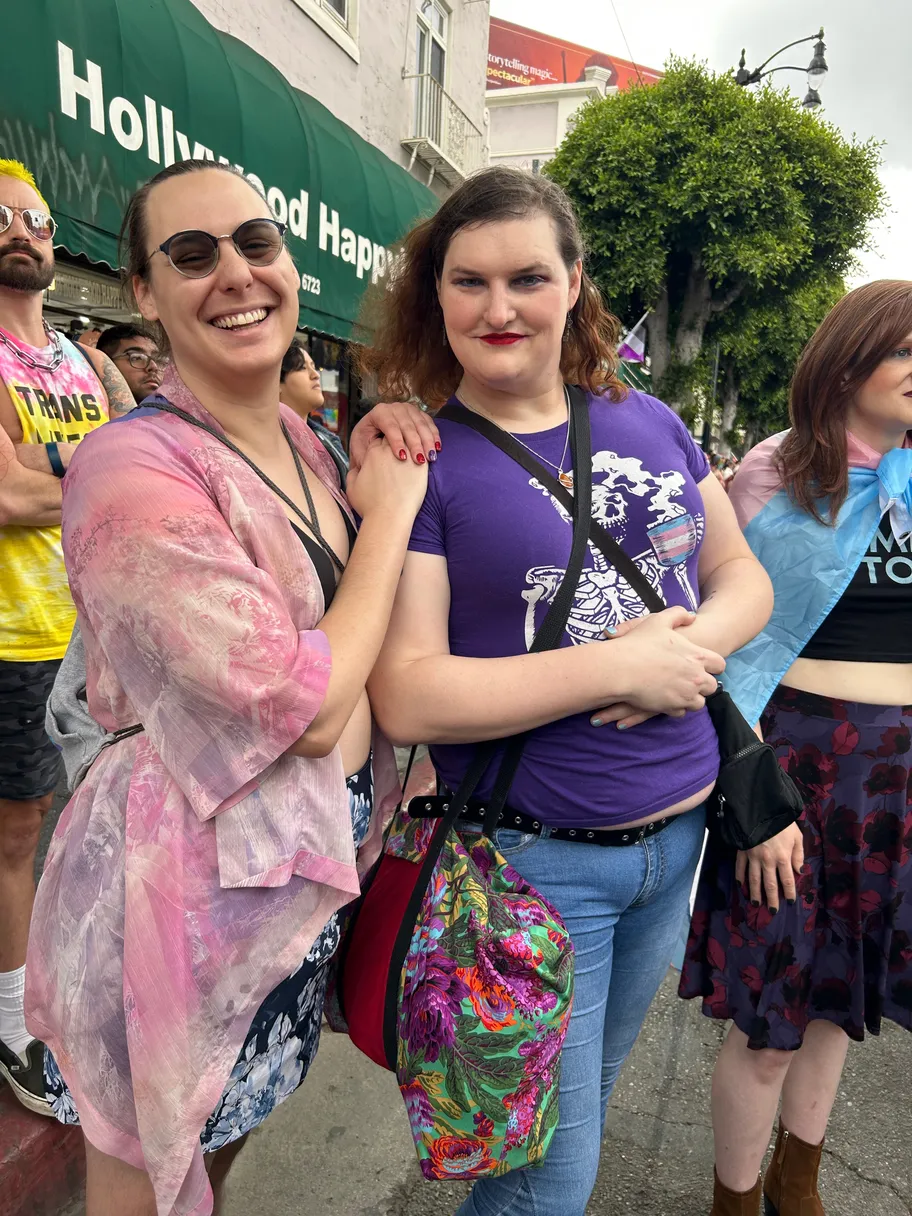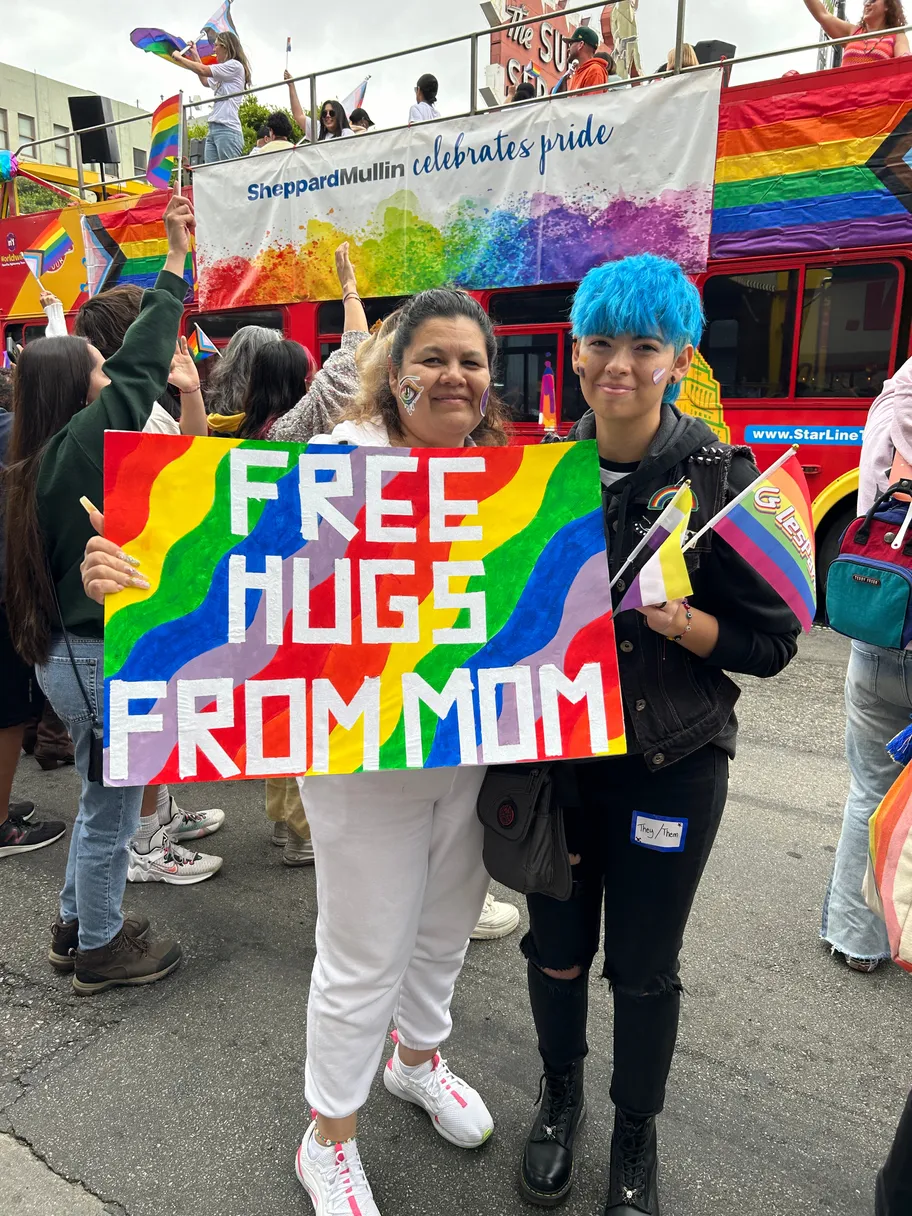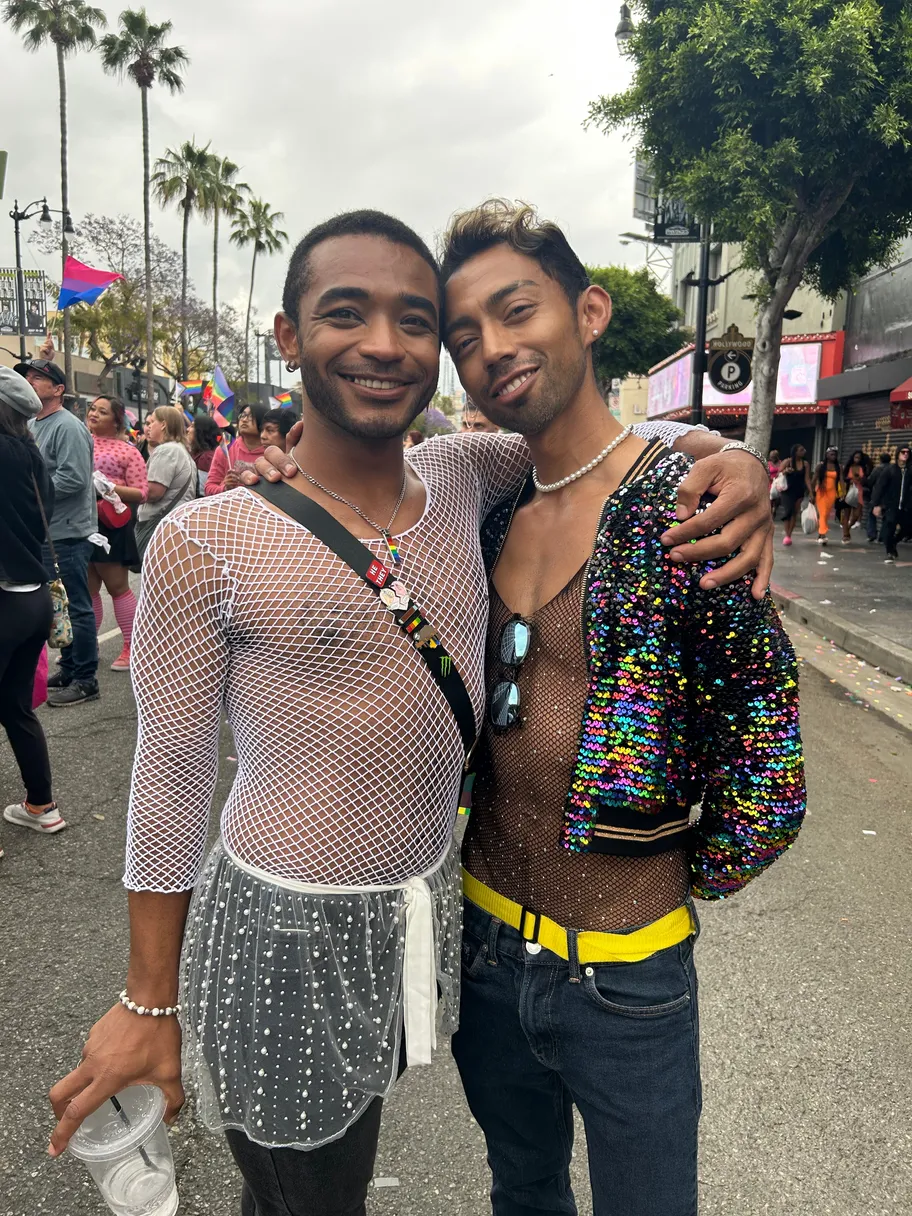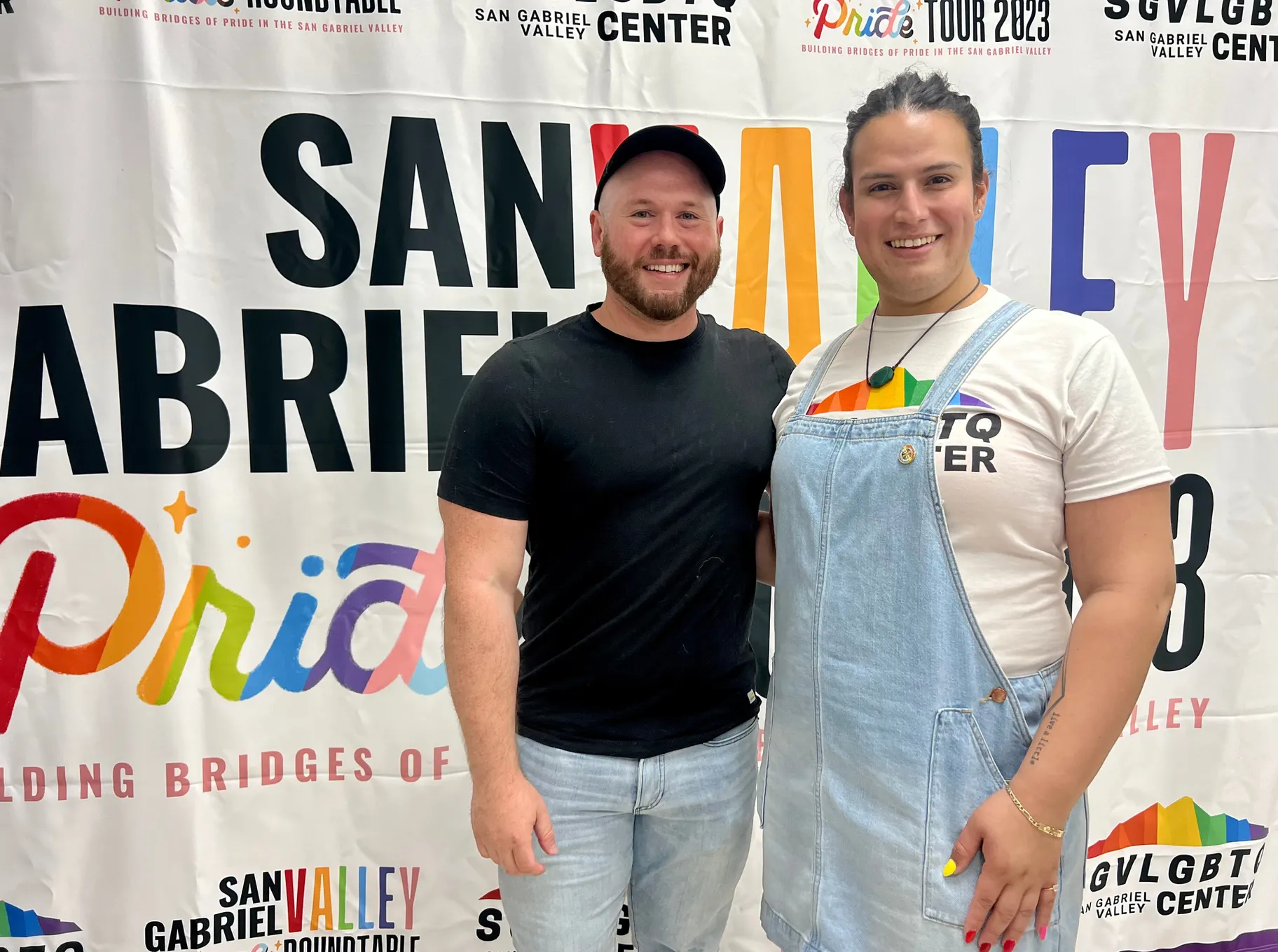Pride Month is still full of celebration and revelry this year, but against a backdrop of hate. State after state has been trying to enact anti-trans and anti-drag legislation. Locally, anti-LGBTQ+ demonstrators have shown up at school board meetings and at Dodger Stadium. So KCRW decided to ask local queer-identifying people what’s on their minds in this divisive moment in queer history. Producers headed to the LA Pride parade in Hollywood, plus Loteria Pride game night in El Monte.
Armond Anderson-Bell (Imani Phoenix): “For us to understand what Pride is, it's not all about parties. It's not all about the rainbow. People have fought and died so that we can be on these corners. So as a Black man from South Central Los Angeles who was openly gay, I find that authenticity is important. … It's not about one day, it's not about one month, it's all that you do. Every aspect of who you are should be a celebration.”

Coral Reefer (left) and Claire Townley (right). Photo by Zoie Matthew.
Claire Townley: “I think [pride events are] extra important because of how much hate there is for people who are just trying to exist and live as themselves, love who they love. … It should never be political to love someone, never political to exist.”
Coral Reefer: “Queer joy is so important now. … I find my queer joy in the communities that I've cultivated with close friends … going out and supporting artists at bars, and supporting other queer folks.”

Claudia Mirafuentes (left) and Kai Mirafuentes (right). Photo by Zoie Matthew.
Claudia Mirafuentes: “I know so many parents don’t accept their kids. And why? That's my daughter. Whoever she is, this is my daughter. I love her, and that's why I want to share with everybody my love.”

Jonathan Smith (left) and Noé Morales (right). Photo by Zoie Matthew.
Noé Morales: “I've learned to see myself through the eyes of the people that love me. Because growing up, I didn't. And it was because of societal pressures. If you’ve got the right people around you and the chosen family, you can’t go wrong.”
Jonathan Smith: “We need to speak louder than ever to stand up for who we are, our existence and everyone's existence, to be fully accepted. The stuff that's happening right now, it's not acceptable. And it shows really how much fear is out there on both sides. When all we want to do is bring love, you know? We just want to care about each other. Why is that so hard?”

Christian Port (left) and Camila Camaleón (right). Photo by Zoie Matthew.
Camila Camaleón: “I think queer joy really is … the ability to feel safe, the ability to feel comforted. It's almost like having your favorite blanket. … I think it's important to acknowledge that queer joy is needed, that LGBTQ youth wants to see us happy. They want to know that they can be happy, like they want to know that they can reach 18, 21, 30, get married, not get married, find a job, quit jobs — all of these different things that we do as adults, and we do as humans as part of this experience that we're walking together.”
